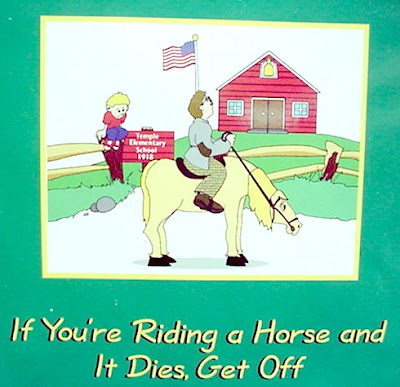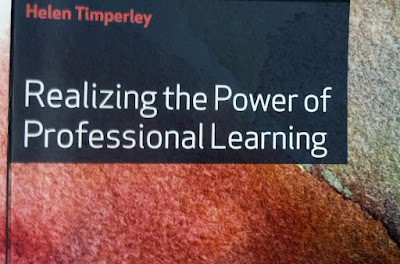Beginning teaching - or starting a new year

Robert Fried is worth reading. Another of his books is called the 'Passionate Teacher'. In his book the 'Game of School' he writes about how students learn to play the game of school to get along. I remember one of his anecdotes was about a grade one student coming home and being asked by his anxious mother what he had learnt during the day? He told his mum he learnt that their were two kind of kids. Good ones who did as the teacher asked of them and bad kids who didn't. Conformists and non conformists. Kids learn quick.
Fried's book outlines several groups of students from those who work to please the teacher, those who work because they love learning , and others who get their satisfaction by confronting teachers, and those who try to remain invisible.
Beginning teachers face a dilemma.
It is obviously sensible to 'find out what is important around here' and to get on with doing it.
Good advice to start with but the danger is that it is all too easy to conform unthinkingly to bad habits as well.Compliance and conformity to school expectations ( for better or worse) is more the name of the game for new teachers.
For example there is a lot of talk about the importance of inquiry and creative learning - about integrating subject disciplines around relevant problems. However when school timetables are passed out it becomes pretty obvious schools are centred around two traditional areas - literacy and numeracy.
In fact it is hard to see where inquiry and creativity actually fit in.
The only solution, if you are a new teacher, is to do your best to develop literacy and numeracy skills that will be used to ensure deep and meaningful inquiry studies. Students should see inquiry learning as the most important thing.. They should see literacy and numeracy as a means to an end -as vital 'foundation skills'. They need to see the difference between 'real' maths and 'practice' maths.
This is easiest in literacy ( I prefer the heading 'language arts') by basing comprehension and information research skills on the current inquiry topic but most inquiry topics also need mathematical skills to be in place. And it is important for students to see the connections as well.
One task I would do is to get the class to complete an informal survey of attitudes, or feelings, towards all aspects of the school curriculum. Ask students to show their interest using a one to five scale or sad or smiley faces.
Developing a love of learning and developing a 'feeling for' each area is vital. If the results are less than wonderful then you will know where to place your effort as teacher.
It strikes me teachers spend hours each week on mathematics for little effect. At the end of schooling far too many students leave with a poor attitude ( and achievement level) in maths and this ought not to be the case. If you placed poetry on the list I bet not many students would say they liked it but I also bet that, with interesting teaching, all students would come to see poetry as a fun activity.
So what do your students think of various school subjects? The survey is a good first day activity. Better still if the list were drawn up by all teachers and used as an important assessment tool.
If you know about the mindset research of Carol Dweck add :
1 Do you think were are born as smart as you are ever going to be ( 'brains' or sports ability) and there are some things you just can't do ?
Or
2 Do you think you can get better at anything if you try hard and practice?
The first is a 'fixed mindset'.Low ability students get their lack of ability affirmed at school ( through ability grouping, national testing or streaming) and high achievers ( often girls) do not risk their status by new areas of learning becoming risk averse. Those with a 'growth mindset' just have a go at anything believing in effort and focused practice and see not succeeding as a challenge.This 'growth mindset' underpins the New Zealand Curriculum; ' have a go kids'
Click on the links below for some good advice to read before starting the school year.
Great expectations -advice for beginning teachers
Starting the school year..Lots of practical activities to choose from
If you want some practical ideas to start the year check out action plans and lessons.
Make this the year to break out of traditional patterns and assumption and to develop active literacy, mathematics and inquiry programmes - ones that value students' 'voice' , questions, ideas and creativity.
There is no rush but don't be trapped by yesterdays timetables and expectations.
Remember the revised New Zealand Curriculum has as its vision for all students to be 'confident life long learners' ( or inquirers) and for them to have the competencies, or 'habits of mind', or 'learning power', to be 'seekers, users,and creators of their own knowledge'.
Few schools have achieved such a vision - yet! Or if they have the vision they have a reality gap between what is said and done


 Posted in:
Posted in: 




